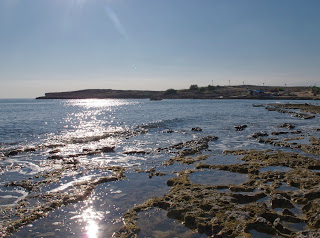With the festive season fast approaching, we all find ourselves with lots of nights out and parties to attend to celebrate. Be it with friends, family or work, it is easy to find yourself over doing it with the alcoholic beverages but if we are diving during this season, how can this impact our health?

Obviously, we all know the risks of drinking too much and most of us wouldn't even consider having an alcoholic drink before we go Scuba Diving but just like driving the morning after a big night out, can alcohol still affect us while we dive?
The answer is a big resounding YES!!
It takes time for our bodies to metabolise alcohol in our systems and there are no hard and fast rules. Like diving and Nitrogen off-gasing, everyone is different and everybody's metabolic rate can vary.
Narcosis and Alcohol
Tests have shown that a diver's ability to complete skills on Scuba is dramatically compromised with a Blood Alcohol Concentration of just 0.04% which is less than the legal limit for driving a car and, after a late night drinking, can easily be the level left in your body the next morning.
Add this impairment to that which we already feel as divers through Nitrogen Narcosis and you are asking for trouble, especially if old Murphy pops his head up....
Energy Zapping
Which leads us quite nicely onto our next problem with drinking the night before diving. Alcohol Drains Energy by impeding the liver from producing the body's primary energy source, Glucose. This can leave you feeling tired and lethargic.
If Murphy does show up on your dive, you want to have a bit of Energy in the bank to be able to deal with the unexpected. A lack of Energy can leave you incapable of dealing with it safely and expediently.
Chilling
Feeling chilly? Have a wee dram of brandy to warm your cockles, right?
Wrong!
Alcohol actually works to dilate the blood vessels close to the skin, allowing blood to flow closer to the surface, which makes you feel warmer but with blood flowing away from the core and so close to the surface, you lose heat and chill faster.
Add this to the fact that we lose heat 25 times faster in the water anyway and those drinks are putting you at increased risk of Hypothermia
Dehydration
We have touched on Dehydration and Diving in previous articles and discussed all the risks that entails. In brief alcohol affects the kidneys, which is going to lead to a loss of body fluids and when you combine this with the dehydrating effect scuba diving inherently causes, we greatly increase the risk of DCI.
So, the take-away from this blog is not kebab and cheesy chips or to put a damper on your Christmas festivities. This is just a reminder that if you are scuba diving, take it easy the night before and after your dives.
You don't have to abstain completely but moderate your alcohol consumption and maybe switch to soft drinks after 11pm to give your body a good 8 hours, at least, to metabolise the alcohol to an acceptable level.
Above all else...Dive Safe!







